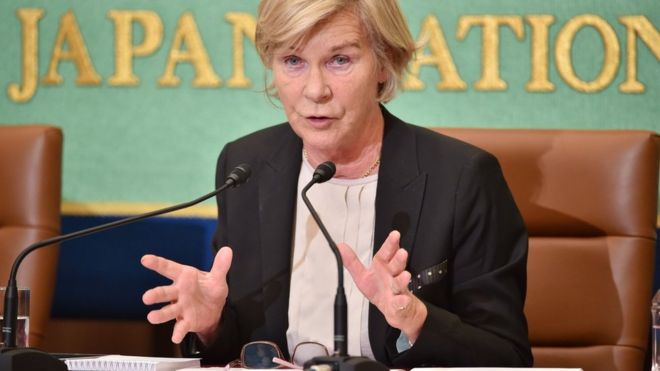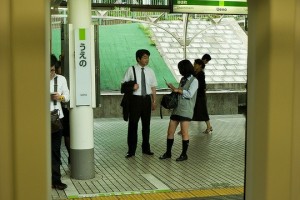Japan to UN: “No, 13% of school students are not doing compensated dating”
When Maud de Boer-Buquicchio, the UN’s special rapporteur on the sale of children, child prostitution and child pornography, told the media that Japan should “ban sexually abusive images of children in manga” at the end of her visit in October, you might think the manga industry would be the ones to get all hot under the collar.
Actually, the strongest reaction seems to have come from the Japanese government itself.
It was another comment Maud de Boer-Buquicchio made that has stoked up trouble.
She drew on unknown statistics to claim that “Some 13% of schoolgirls in Japan are involved in enjo kosei“.

Enjo kosai, as regular readers will know, is the euphemistically named “compensated dating” where school students go on dates with salarymen they meet online in return for money or treats. Hence you can see very young girls with designer bags on their arms. They earn the cash somewhere.
Japan’s Ministry of Foreign Affairs has demanded the remark be officially withdrawn.
It first asked for a source for the claim.
De Boer-Buquicchio apparently responded that she had not relied on one single source because there is no official statistic (we can’t help imagine why…).
“However, many of my interlocutors referred to it as a worrying trend which can easily lead to sexual exploitation of the minors involved in this lucrative business,” she added.
“In the press conference, I made reference to estimates I had seen in open sources to highlight a phenomenon that must be urgently tackled.”
Open sources means websites like this one?
The foreign ministry says her remarks are “inappropriate” and “regrettable”.















1 Comment
While the UN is worried about what happens with anime and manga in Japan every day children starve to death in wars and conflicts in Africa and the Middle East and in Europe there are increasingly richer. UN level hypocrisy.